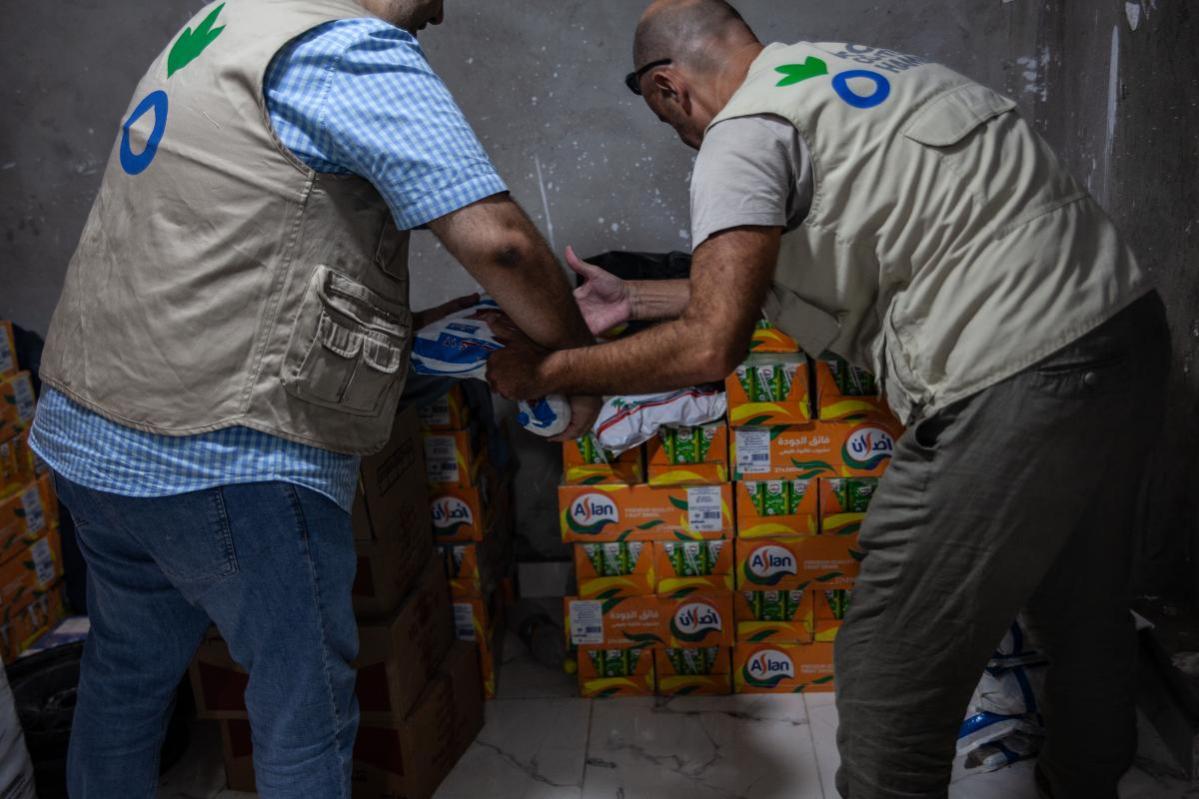Gaza is dying of thirst. Our staff on the ground tell us that they have only one litre of water a day for the next few days
The population consumes saline water and the risk of diseases such as cholera and diarrhoea increases due to the destruction of sanitation systems
- 2.3 million people living in the Gaza Strip urgently need water. The amount of water that has entered on aid trucks remains insufficient to meet the water and sanitation needs of the displaced and host population.
- Action Against Hunger calls for the immediate entry of fuel to restart the pumping of water from groundwater sources, restarting of desalination plants for drinking water and water trucks to deliver the water to displaced populations.
- In the Gaza Strip, we are distributing items such as water bottles, mattresses and hygiene products.
Gaza is dying of thirst. 2.3 million people living in the Gaza Strip urgently need water. According to estimates, the population has seen its average daily water consumption reduced to three litres, which includes hygiene and cooking needs. Our staff tell us that they only have one litre of water a day for the next few days.
Action Against Hunger warns that the amount of water that has entered Gaza, and the absence of fuel for critical water infrastructure, remains the greatest challenge to meet the water and sanitation needs of the displaced and host population. In addition, more than half of the water supply infrastructure is currently damaged and in need of repair.
This puts the population in an even more difficult situation, consuming saline groundwater, which increases the risk of contracting diseases such as cholera and diarrhoea, the leading cause of child mortality worldwide. In addition to these diseases, cases of chicken pox and scabies have also been detected, which can be attributed to poor sanitation and consumption of water from unsafe sources.
Action Against Hunger's Middle East regional director, Chiara Saccardi, says: "People are rationing water and drinking only one litre a day. Water tankers have no fuel. Desalination plants don't work. You can't access groundwater without fuel to pump it into the water network. Dehydration, extreme fatigue, along with thirst and dehydration or concentrated urine, which could mean that many people are suffering from kidney failure, are some of the symptoms we are starting to see. The sanitation crisis means we are on the brink of major disease outbreaks. We have reports of rats and cockroaches in displacement centres, piles up of solid waste and wastewater. We are doing what we can on the ground, but we face immense challenges”.
In response to this emergency, Action Against Hunger teams on the ground have already distributed thousands of bottles of water, hundreds of mattresses, and hygiene products on a small scale inside the Gaza Strip, in coordination with local and international actors.

Action Against Hunger's emergency team deployed in Egypt © Action Against Hunger
We are also providing a cleaning service in one of the most crowded displacement shelters and cash assistance to a number of beneficiaries. Action Against Hunger continues to work with suppliers who have stocks inside Gaza to distribute basic supplies such as water, food, hygiene products, nappies, blankets and mattresses as efficiently and quickly as possible at short notice. This is becoming increasingly challenging as local stocks are running out, inflation is rampant, fuel is almost completely depleted, which limits the transportation, and the security situation remains insecure.
In addition, the organisations' emergency team is assessing immediate needs and coordinating with international and local partnerships to distribute additional life-saving supplies from Egypt.
